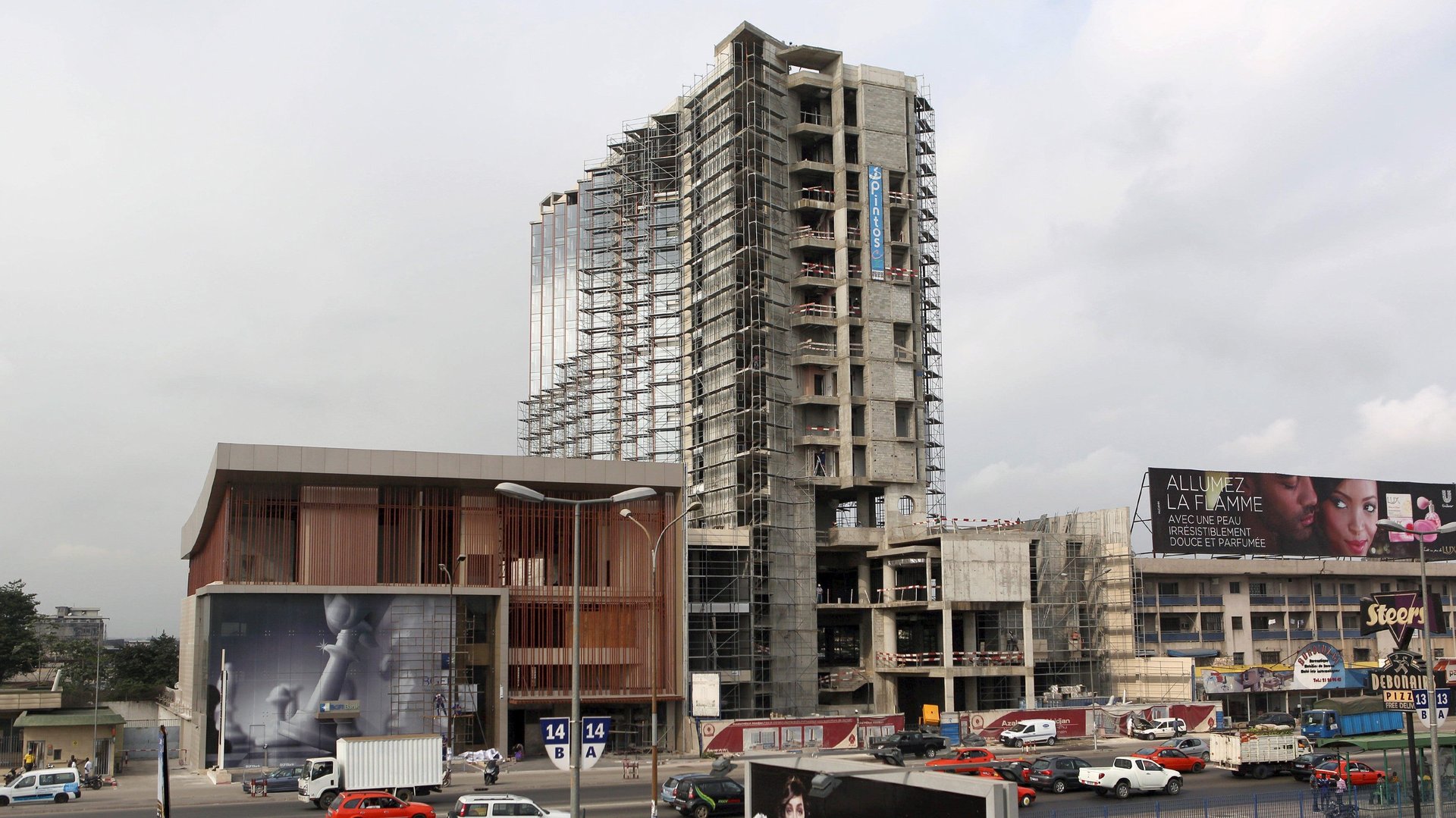The French are back in booming Côte d’Ivoire—but so is everyone else
Côte d’Ivoire, the biggest economy in French-speaking West Africa, has revved back to life under president Alassane Ouattara—the overwhelming favorite to win a second term in the October 25 election. And at first glance the French, its former colonial masters, are all over it.


Côte d’Ivoire, the biggest economy in French-speaking West Africa, has revved back to life under president Alassane Ouattara—the overwhelming favorite to win a second term in the October 25 election. And at first glance the French, its former colonial masters, are all over it.
In Abidjan, a new lagoon bridge allows crosstown traffic to avoid the congested center. French construction giant Bouygues built it, and is a partner in the deal to build Abidjan’s light-rail system. Bolloré, which operates the container port, has signed a deal to manage a second terminal that has is now under construction. Retailers Carrefour and FNAC are opening. Sofitel has revamped the venerable Hotel Ivoire. Air France flies Paris-Abidjan with the mammoth Airbus A380. Le Monde hosted an Abidjan summit featuring Thomas Piketty.
This activity reflects renewed appeal for an economy of 25 million people with some of West Africa’s best infrastructure. A decade of stagnation and conflict that ended in 2011 has given way to GDP growth of 8% to 10%. Côte d’Ivoire has earned IMF praise and scored a big leap in the World Bank’s “Doing Business” rankings.
The French connection continues with Ouattara himself, a former top IMF official who is a friend of Nicolas Sarkozy and others in the French elite. His wife Dominique, seen at rallies wearing bright-colored pagne in her husband’s campaign colors, is French. It’s a contrast with his predecessor Laurent Gbagbo, who railed against French imperialism (though his government still made plenty of deals with French firms), and whom French forces were instrumental in dislodging in April 2011, after he refused to concede defeat in the November 2010 vote.
Yet if Ouattara’s France-friendly stance echoes that of his mentor—the country’s first president, Félix Houphouët-Boigny, who ruled from independence in 1960 until his death in 1993—Ouattara has broken from the script as well. Far from dealing only with France, he has flung the doors open wide to new investors.
China is financing and carrying out the crucial expansion of Abidjan’s port. Korea’s Dongsang is a partner in the light rail project. A Tunisian company company led a major highway extension. Turkey’s Yildirim group is launching water taxis. A Kuwaiti firm got the contract for airport logistics. Moroccan investment is expanding, prompted by Ouattara’s ties with King Mohammed VI, whose father, Hassan II, was close to Houphouët-Boigny.
In agriculture, where Côte d’Ivoire is the world’s top cocoa exporter and a big producer of cotton, rubber, oil palm and more, global giants like Cargill are long-established. Singapore’s Olam has Côte d’Ivoire on the verge of surpassing India as the top cashew producer. Mining is expanding, thanks in part to London-listed Randgold’s Tongon gold mine.
Yes, France retains an edge in Côte d’Ivoire, with political affinities, a shared language, legal similarities, and a web of individual business ties. Yet both sides are thinking ahead. Côte d’Ivoire is diversifying its economic ties. French interests are looking beyond Côte d’Ivoire and other Francophone countries towards new business in Ghana and Nigeria.
Indeed, some losers in Côte d’Ivoire’s growth dynamic are French: the long-term expats who have lived in the country for decades and make up a large part of its small-business sector. Expensive credit, due in part to the fixed euro peg of the regional currency, the CFA franc and the conservative policy of the regional central bank, makes it hard for the country’s under-capitalized small businesses to get their share of the expanding pie.
Helping these small businesses share in the growth will be one of the tasks for Ouattara in his second term—part of a broader challenge of social development and job creation. In the meantime, Côte d’Ivoire’s boom means opportunities for foreign investors from all over the world, not just France—and for local partners with the right political connections.